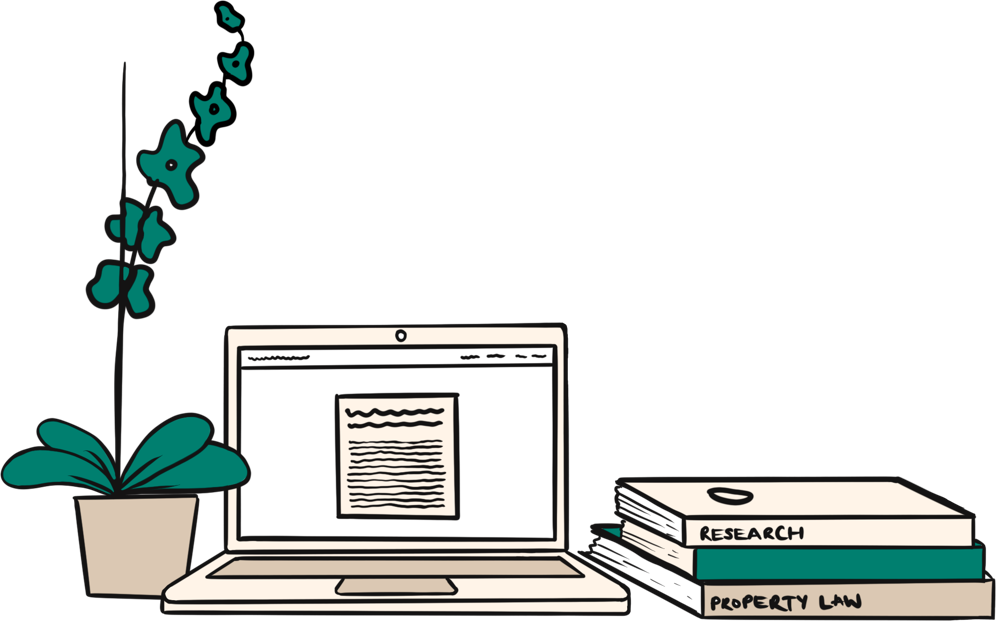Tell us about your move - are you buying, selling, or both?

Key takeaways
- Mortgage brokers search across multiple lenders to find options tailored to your financial situation.
- Brokers are valuable for complex situations, while direct lenders work well for straightforward cases.
- Benefits include market-wide access and time savings but consider potential fees and limited access to some direct-only deals.
- Broker costs vary widely—some work on commission, others charge fixed or percentage-based fees.
- Always ask clear questions about experience, lender relationships, and fees before selecting a broker.
Getting a mortgage is a significant step in your property journey. While many focus on finding the perfect home, securing the right financing is equally important.
This guide explores the role mortgage brokers play in this process and helps you work out whether their expertise could benefit you.
Understanding your options now could save you both time and money in the long run.
What is a mortgage broker?
A mortgage broker is a professional who acts as an intermediary between you and potential lenders.
A broker typically searches across numerous lenders to find the most suitable mortgage options tailored to your specific financial situation.
Mortgage brokers are essentially your guide through what can be a complex financial landscape, using their expertise and industry connections to simplify the property buying process.
Brokers typically have access to a wide range of products from various lenders, including options that might not be directly advertised to the public.
Guide: A full guide to mortgages.
They’ll do all the heavy lifting for you, including assessing your finances, understanding your goals, and matching you with appropriate lenders. Their goal is to guide you through the mortgage maze from start to finish, explaining any terms, and supporting you through the approval process.
This can be especially helpful if you’re a first-time buyer.
What’s the difference between a mortgage broker and an advisor?
While the term advisor refers to the roles of providing expert guidance and a broker emphasis application assistance and market access, the two terms are used interchangeably. They may offer slightly different services depending on their role, but a lot offer the same services.
Is it better to go directly to a lender or use a broker?
Choosing between a direct lender or a mortgage broker really depends on your situation and how comfortable you feel with the mortgage process.
Going straight to a bank works well if you have a straightforward financial picture, already understand mortgage basics, and don’t mind doing your own research. It’s a decent option if you’ve got an existing relationship with a lender or prefer handling things directly.
Brokers shine by offering a view across the whole market instead of just one lender’s options. This broader perspective helps if you have specific circumstances (like being self-employed), want to make sure you’re seeing all possible deals, or simply value having an expert guide you.
The choice often boils down to whether you prefer having someone navigate the process for you or would rather handle the research yourself.
Moving house is already time-consuming, and mortgage hunting can eat up valuable hours that a broker could save you.
Guide: How long does it take to buy a house?
Benefits and disadvantages of using a mortgage broker
When weighing up whether to use a mortgage broker, it helps to consider the specific advantages and potential drawbacks. Everyone’s situation is different, so what matters most will depend on your priorities and circumstances.
Benefits of using a mortgage broker:
- Wide market access: Brokers can search across dozens of lenders and hundreds of mortgage products, many of which aren't available directly to the public. This broader search often uncovers deals you might otherwise miss.
- Tailored advice: Rather than a one-size-fits-all approach, brokers recommend mortgages specifically suited to your financial situation, future plans, and property goals. This personalised matching can make a significant difference to your long-term finances.
- Knowledge and expertise: Mortgage brokers navigate complex lending criteria daily. Their expertise helps identify potential issues before they become problems and can be particularly valuable if you have unique circumstances like irregular income or past credit issues.
- Time and effort saved: The mortgage process involves considerable paperwork and back-and-forth communication. Brokers handle these administrative tasks, chase lenders, and keep your application moving forward.
Disadvantages of using a broker:
- Broker fees: While many brokers receive commission from lenders, some charge clients directly. These fees vary widely, so it's important to understand how your broker is paid before proceeding.
- Lender restrictions: Some banks offer exclusive products only to direct customers. Your broker won't have access to these deals, potentially meaning you miss out on certain options by not approaching all lenders yourself.
- Restricted communication – Working through a middleman means you don't build a direct relationship with your lender. Some people prefer having this direct connection, especially if they anticipate needing to discuss their mortgage in the future.
- Potential for bias – Brokers may have stronger relationships with certain lenders or receive better commissions from some than others. While professional brokers put client needs first, it's worth asking how they select recommended products to ensure your interests remain the priority.
How much does a mortgage broker cost?
The cost of using a broker varies considerably depending on the type of service and how they’re paid.
Some brokers offer “fee-free” services to clients because they receive a commission from lenders when they successfully arrange the mortgage.
Fee-charging brokers might use different payment structures:
- Fixed fee: a one-off amount regardless of your mortgage size, typically between £300 and £1,000
- Percentage fee: Usually 0.5 to 1% of your mortgage amount
- Hourly rate: Less common, but some charge by time spent on your case
Some brokers use a mixed model, charging a modest upfront fee and receiving commission from lenders.
When comparing costs, it’s important to look beyond the fee structure. A good broker might charge more but save you money overall by finding a better mortgage deal.
Similarly, a “free” broker service still involves commission costs that lenders factor into mortgage pricing.
Always ask potential brokers to clearly explain their fee structure, when payment would be due, and whether you might be charged without successfully obtaining a mortgage. Get all of this in writing as well.
How do I find a good mortgage broker?
If you decide to use a broker, you’ll of course want to use a top-notch one, buying a property is one of the biggest purchases you’ll ever make, so ensure to find someone you trust.
The best place to start is to look for recommendations from friends and family, and it’s a given in this day in age to always check reviews. This will let you see how other customers found them, what’s good about them and what might be off putting.
Questions to ask your mortgage broker
Finding the right mortgage broker involves more than comparing fees. These key questions will help you understand what to expect and ensure you're getting the service you need.
- How are you paid, and what will it cost me directly?
- What range of lenders and products do you have access to?
- Are there any lenders you don't work with that I should approach separately?
- What experience do you have with cases similar to mine?
- How do you select which mortgages to recommend to me?
- What information do you need from me to get started?
- How long might the process take from initial consultation to mortgage offer?
- What ongoing support will you provide if issues arise during my application?
- Are there any particular challenges you foresee with my situation?
- Will you handle all communication with the lender, or will I need to speak with them directly?
Asking these questions during your initial consultation gives you a clearer picture of what the broker offers and whether they're a good match for your needs. Trust and communication are essential, so pay attention to how thoroughly and clearly they answer.
What should I do next?
1. Research mortgages
Before diving headfirst into finding a broker, it’s a good idea to do a little market research yourself first. Have a look at what lenders are offering, and understand the type of mortgage you want before talking to a broker.
You can check out our full mortgage guide for more information on how to do this, or if you’re buying your first home, read our first-time buyers guide.
2. Use tools
There are plenty of tools out there to help you see what type of mortgage you need, how much you’ll be able to afford, and what your monthly repayments might look like.
Guide: The cost of buying a house and moving
3. Get advice from a broker
You could go straight to this step if you’re getting a little overwhelmed with all the mortgage info out there (we get it). Many brokers offer initial fee-free advice, so take advantage of this where you can. It’s a great opportunity to get a strong idea of what your mortgage might look like.
Frequently asked questions
Can a mortgage broker help me if I have a poor credit history?
Yes. Brokers often specialise in finding mortgages for people with credit challenges. They know which lenders are more flexible with credit issues and can guide you toward products specifically designed for these situations.
Do mortgage brokers offer better rates than I could find myself?
In many cases, yes, but not always. Brokers often have access to exclusive deals not available to the public. Additionally, their volume of business sometimes enables them to negotiate better terms with certain lenders than you might secure independently.
What documents will I need to provide to a mortgage broker?
Typically, you'll need to share proof of identity, address history, income details (payslips or tax returns), bank statements, information about existing debts, and details of the property you're interested in purchasing.
Are online mortgage brokers as effective as face-to-face brokers?
Online brokers can offer the same level of service as traditional brokers, often with added convenience and sometimes lower fees. The most important factor isn't whether they're online or face-to-face, but their qualifications, access to products, and communication style.

Conveyancing at your fingertips
Your move at your fingertips - track progress 24/7, receive weekly updates, and connect via phone, email or instant message.
Work with a dedicated property lawyer throughout your move. Personal attention and clear communication from start to finish
Know your costs from day one with transparent fixed fees - no surprises, no hidden extras.

